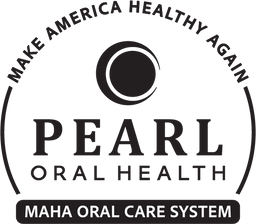Have you ever felt a sharp pain after biting into something hot, cold, or particularly sweet? When you have sensitive teeth, simply chewing or eating certain foods can give you a shock of pain.
What is Tooth Sensitivity?
Tooth sensitivity is the result of irritation of the nerves in the teeth, resulting in pain or discomfort when the sensitive teeth come in contact with hot or cold temperatures, or acidic foods. This discomfort can also come from brushing, flossing, or chewing.
So, if you have sensitive teeth, it’s especially important to use the best toothpaste for sensitive teeth to reduce the discomfort and pain that comes with sensitive teeth and receding gums.
Before we look at the best toothpaste for sensitive teeth, let’s first chat about tooth sensitivity and learn why people get it. Because if you know why some people get it, you can avoid those things.
Why Do Teeth Become Sensitive?
Tooth sensitivity can occur when the tooth enamel begins to thin. Enamel is the outermost layer of the tooth and protects teeth from bacteria and tooth decay. There are several reasons this layer of the tooth can wear down, including:
Eating a diet high in sugar and/or acidic foods
The foods you consume can be very impactful to not only your overall health but also the health and strength of your teeth. High-sugar diets can erode the enamel of your teeth, causing long-term damage to this protective layer resulting in tooth sensitivity and eventually cavities.
Eeek! That’s not good. And even if your teeth aren’t sensitive yet, if you’re eating a diet high in acidic foods and sugar, you’re not doing your teeth any favors. A great place to start is by simply replacing soda with water.
Teeth grinding or clenching
Do you often wake up with a sore jaw? This is a common symptom of teeth grinding or clenching, also called bruxism, and is another common way people damage their enamel, resulting in sensitive teeth.
Because teeth grinding and clenching are often the result of stress and anxiety, it is not surprising to find out that dentists are seeing an increase in patients dealing with some form of bruxism. And because the grinding typically happens during sleep, most people don’t even know they are doing it until symptoms like worn enamel and soreness show up.
If you think you’re dealing with some form of bruxism, speak with your dentist. Additionally, take steps to reduce stress in your life as well as intentionally relax your jaw throughout the day.
Gum disease
Receding gumlines are increasingly common with age and can cause tooth sensitivity. Gum disease causes the gums—which are meant to protect your teeth—to recede, thus exposing the roots of your teeth and increasing tooth sensitivity. If you’re experiencing signs of gum disease, your dentist can help you determine the root cause and get you on a plan to control and strengthen your gums.
Fractured tooth
Life happens to all of us, and it’s not uncommon that throughout the course of living we’ll crack a tooth. If you do damage a tooth, it may not be sensitive immediately. The problem though is that the fracture leaves room for bacteria to travel into the tooth causing sensitivity. Remember, the teeth enamel is there to protect the innermost layers of the teeth, so anytime something happens to that layer of enamel, there is a chance your teeth could experience sensitivity or get infected.
Whitening products
We all want a sparkling white smile, however, the ingredients in most tooth whitening products can actually cause tooth sensitivity by damaging the enamel and gums. While there are many natural ways to whiten teeth, over-the-counter products typically contain harmful ingredients that can damage the layers and roots of the teeth, causing tooth sensitivity.
Brushing too hard
Yep, you read that right. It’s the most basic dental care activity, but when you brush your teeth too aggressively, you can actually wear down the enamel and provoke gum recession. When brushing your teeth, use a soft-bristled brush and be mindful not to brush too hard.
How Can You Prevent Tooth Sensitivity?
Practice good oral health
Taking daily steps to prevent tooth decay—aka cavities—is basic Oral Hygiene 101. This means using quality toothpaste, eating a healthy diet, and cleaning your teeth daily. Learn some easy ways to prevent cavities.
Eat a tooth-healthy diet
Our teeth are affected by our diet just like our weight. Eating a whole-food diet that is low in sugar and acidic foods will help prevent tooth sensitivity.
Relax!
Stress is one of the leading causes of teeth grinding and clenching, which can seriously damage your tooth enamel. If your jaw is feeling tense or sore, start taking steps to relax throughout the day and before bedtime.
Get regular teeth cleanings
Making it a point to visit your dentist regularly will help you catch issues before they become too serious. Learn more about what to expect during a teeth cleaning.
What Is the Best Toothpaste for Sensitive Teeth?
Not all toothpaste is created equal. When we recommend toothpaste, we’re considering the quality of ingredients and how those ingredients will affect not just your teeth—but also your overall health!
Too many kinds of toothpaste contain harmful ingredients liked fluoride, triclosan, saccharin, parabens, and more. The companies using these ingredients make claims that they “whiten” and “strengthen” teeth, however, that’s not the full story. These ingredients are known to be potentially harmful and if you are anything like us, putting questionable ingredients into our body is a no-go.
So, what toothpaste do we recommend? If you’re looking for quality, natural toothpaste that will be gentle on sensitive teeth, check out Pearl Natural Toothpaste. You’ll be able to rest easy knowing you’re cleaning and remineralizing your teeth naturally, without any harmful ingredients to worry about.
This new toothpaste releases very soon and we’ll launch with a limited amount, so get on the launch list to know when it’s first available!


